
Journal of Hepatocellular Carcinoma
Scope & Guideline
Unveiling the latest breakthroughs in liver oncology.
Introduction
Aims and Scopes
- Clinical Research and Trials:
The journal publishes studies that investigate various clinical aspects of hepatocellular carcinoma, including treatment efficacy, patient outcomes, and therapeutic strategies across different patient demographics. - Molecular and Genetic Studies:
Research contributions often explore the molecular mechanisms underlying HCC, including genetic mutations, epigenetic modifications, and their implications for prognosis and treatment. - Imaging and Radiomics:
The journal emphasizes the role of advanced imaging techniques and radiomic analysis in predicting HCC progression, microvascular invasion, and treatment response. - Immunotherapy and Targeted Therapies:
A significant focus is placed on the development and clinical application of immunotherapeutic approaches and targeted therapies, particularly in combination with traditional treatments like transarterial chemoembolization. - Biomarkers and Prognostic Models:
Research on identifying novel biomarkers for early detection, prognosis, and treatment response prediction is a core area, aimed at enhancing personalized medicine in HCC. - Public Health and Disparities:
The journal also addresses healthcare disparities and the impact of socioeconomic factors on HCC treatment outcomes, contributing to a broader understanding of the disease in diverse populations.
Trending and Emerging
- Artificial Intelligence and Machine Learning:
Recent publications increasingly utilize AI and machine learning techniques for predictive modeling, enhancing diagnostic accuracy, and personalizing treatment strategies for HCC patients. - Combination Therapy Strategies:
There is a growing trend towards exploring combination therapies, particularly integrating immunotherapy with traditional treatments, reflecting the need for more effective and comprehensive treatment regimens. - Metabolic and Nutritional Factors:
Research examining the role of metabolic syndrome, nutrition, and specific metabolic pathways in HCC progression and treatment response is emerging as a significant area of interest. - Patient-Centered Care and Quality of Life:
Studies focused on patient-reported outcomes, quality of life, and healthcare disparities are becoming more prominent, indicating a shift towards a more holistic approach to HCC management. - Novel Biomarker Discovery:
There is an increased emphasis on identifying and validating novel biomarkers for early detection and monitoring treatment response, driven by advances in genomic and proteomic technologies.
Declining or Waning
- Traditional Chemotherapy Approaches:
Research focusing on conventional chemotherapy methods has decreased as newer targeted therapies and immunotherapies gain traction, reflecting a shift in treatment paradigms. - Single-Modality Treatments:
The emphasis on single-modality treatments, such as isolated surgical resection or standalone chemoembolization, is waning in favor of multimodal approaches that combine various therapies for improved outcomes. - Basic Science without Clinical Application:
There is a noticeable decline in studies that focus solely on basic science or laboratory findings without direct clinical relevance or application, as the journal increasingly prioritizes translational research. - Epidemiological Studies:
The frequency of purely epidemiological studies examining HCC incidence and prevalence is decreasing, possibly as the journal shifts towards more intervention-focused research.
Similar Journals

Oncologie
Bridging theory and practice in cancer care.Oncologie is a distinguished academic journal published by WALTER DE GRUYTER GMBH, focusing on the dynamic and vital field of oncology. Established in 1999 and continuously published until 2024, this journal provides a platform for high-quality research and advancements in cancer treatment, prevention, and diagnosis. With an ISSN of 1292-3818 and an E-ISSN of 1765-2839, it is indexed in various databases, contributing to its growing visibility. Although categorized in the Q3 quartile for oncology research as of 2023, Oncologie offers essential insights and fosters scholarly dialogue among researchers, professionals, and students interested in oncology. Its unique contributions aim to bridge the gap between theoretical frameworks and clinical applications, making it a valuable resource for those seeking to advance their knowledge and expertise in cancer research.
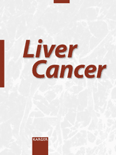
Liver Cancer
Unveiling breakthroughs in hepatology and oncology.Liver Cancer is a premier, peer-reviewed journal dedicated to the comprehensive study and advancement of knowledge surrounding liver neoplasms. Published by KARGER and headquartered in Switzerland, this journal has been an open-access platform since 2012, providing researchers with invaluable insights into the rapidly evolving field of hepatology and oncology. With an impressive impact factor that places it in the Q1 category for both Hepatology and Oncology in 2023, Liver Cancer stands out as a high-impact conduit for groundbreaking research, ranking #19 out of 404 in Medicine _ Oncology and #6 out of 82 in Medicine _ Hepatology according to Scopus. Researchers, practitioners, and students are encouraged to engage with the journal's content, which encompasses clinical studies, basic research, and reviews that contribute significantly to understanding liver cancer dynamics, diagnosis, and treatment strategies. This journal not only facilitates the dissemination of knowledge but also fosters collaboration in a well-established and impactful global scientific community.

Clinical and Experimental Hepatology
Transforming Findings into Clinical ExcellenceClinical and Experimental Hepatology is a pivotal journal dedicated to advancing the field of hepatology, providing a platform for researchers, clinicians, and students to disseminate and explore groundbreaking findings. Published by TERMEDIA PUBLISHING HOUSE LTD in Poland, this journal serves as a vital resource for professionals seeking to enhance their knowledge and contributions in the realm of liver diseases and their management. With an impact factor reflective of its growing influence—ranking Q3 in Hepatology for the year 2023 and holding the 49th position out of 82 in Scopus Medicine Hepatology ranks—this publication underscores the significance of innovative research in this specialized domain. While it currently operates through a subscription model rather than open access, it bridges the gap in hepatological literature by featuring a diverse array of scholarly articles, case reports, and reviews from 2015 to 2024. Researchers and health professionals alike will find valuable insights that can enhance clinical practice and inform future studies, solidifying its importance in the hepatology community.
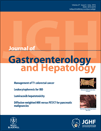
JOURNAL OF GASTROENTEROLOGY AND HEPATOLOGY
Uncovering the latest in digestive health advancements.Welcome to the JOURNAL OF GASTROENTEROLOGY AND HEPATOLOGY, an esteemed publication in the field of gastroenterology and hepatology, proudly published by WILEY. Established in 1986, this journal serves as a crucial platform for researchers, healthcare professionals, and students, presenting groundbreaking research and comprehensive reviews that drive advances in understanding and treating gastrointestinal and liver diseases. With a strong reputation evidenced by its Q1 ranking in gastroenterology and Q2 ranking in hepatology, this journal ranks impressively in the Scopus metrics - positioned at #22 out of 167 in gastroenterology and #21 out of 82 in hepatology, reflecting its contribution to scholarly excellence. Although it does not offer open access options, the journal’s rich archive and diverse topics make it indispensable for those dedicated to improving patient outcomes in these critical areas of medicine. Whether you are a seasoned researcher or an aspiring medical professional, engaging with this journal will keep you at the forefront of the latest developments and emerging trends in gastroenterology and hepatology research.

JHEP Reports
Bridging research and application for a healthier tomorrow.JHEP Reports, published by ELSEVIER, stands at the forefront of scholarly communication in the fields of Gastroenterology, Hepatology, Immunology and Allergy, and Internal Medicine. As an Open Access journal since 2019, it provides a platform for the dissemination of high-quality research findings, making vital information readily accessible to a global audience. With a commendable impact characterized by a Q1 category ranking across four medical disciplines in 2023, JHEP Reports demonstrates its significance and influence, reflected in its impressive Scopus ranks—#11 in Gastroenterology and #14 in Internal Medicine, amongst others. This esteemed journal not only plays a critical role in advancing knowledge but also fosters collaboration among researchers, practitioners, and students keen on exploring innovations and breakthroughs in health sciences. At RADARWEG 29, 1043 NX AMSTERDAM, NETHERLANDS, JHEP Reports is committed to bridging the gap between research and application, ushering in a new era of informed and effective healthcare solutions.
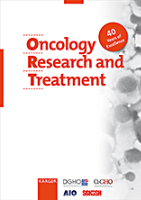
Oncology Research and Treatment
Transforming oncology through collaboration and discovery.Oncology Research and Treatment, published by KARGER, is a highly regarded academic journal dedicated to advancing the field of oncology through rigorous research and clinical insights. With a history spanning from 1978 to 1997 and continuing from 2013 to 2024, this journal provides a vital platform for researchers and professionals in cancer research, hematology, and related disciplines. Though currently listed in the Q3 tier of 2023 for Cancer Research, Hematology, and Oncology, its growing readership and open access policy enhance its visibility and impact within the scientific community. Based in Switzerland, the journal features diverse access options, reflecting the global importance of oncology research. With a focus on innovative treatments and the latest methodologies, Oncology Research and Treatment plays a crucial role in fostering collaboration and dialogue among researchers, professionals, and students alike, helping to shape the future of cancer care and management.
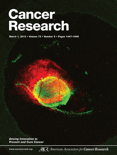
CANCER RESEARCH
Connecting researchers to transformative cancer studies.Cancer Research, published by the American Association for Cancer Research, is a premier journal in the field of oncology, renowned for its commitment to advancing cancer research since its inception in 1941. With an impressive impact factor reflecting its vital role in the field, this journal consistently ranks in the Q1 quartile for both Cancer Research and Oncology, positioning it among the top 7.5% of journals in these categories. The journal serves as a crucial platform for researchers, professionals, and students to disseminate and gain insights into groundbreaking studies that shape our understanding of cancer biology, prevention, diagnosis, and treatment. While it is not an open-access publication, its rigorous peer-review process ensures that only high-quality research is published, thus maintaining a standard of excellence in the scientific community. With a strong legacy and an ever-expanding influence, Cancer Research continues to be essential for anyone dedicated to the fight against cancer, showcasing cutting-edge research that drives scientific discovery and innovation.

Hepatology International
Pioneering discoveries in the realm of hepatology.Hepatology International is a premier academic journal dedicated to advancing the field of liver research and hepatology. Published by SPRINGER, this journal boasts a prestigious Q1 ranking in Hepatology as of 2023, underscoring its commitment to high-quality research dissemination. The journal’s scope encompasses a wide range of topics related to liver disease, including clinical, translational, and basic science studies. With its impact factor reflecting its relevance and influence in the field, Hepatology International serves as an essential resource for researchers, clinicians, and students aiming to keep abreast of the latest developments and breakthroughs. Though traditionally a subscription-based journal, it offers a vast array of insightful articles that contribute significantly to our understanding of hepatological conditions. The journal continues its trajectory of growth since its inception in 2008, anticipating a convergence of knowledge and innovation through to 2024. Located in the heart of New York City, this journal not only represents a crucial platform for global hepatology research but also fosters a collaborative community of experts dedicated to improving liver health worldwide.
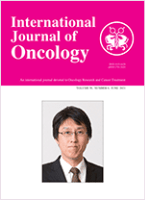
INTERNATIONAL JOURNAL OF ONCOLOGY
Exploring the frontiers of oncology research.INTERNATIONAL JOURNAL OF ONCOLOGY is a leading academic publication dedicated to advancing the field of cancer research and treatment. Published by SPANDIDOS PUBL LTD in Greece, this journal, with ISSN 1019-6439 and E-ISSN 1791-2423, has established itself as a reputable source of peer-reviewed articles since its inception in 1993. With an impressive Q2 ranking in both Cancer Research and Oncology categories, as well as high Scopus ranks reflecting its significant contribution to the fields of Medicine and Biochemistry, the journal offers a platform for researchers, clinicians, and students alike to disseminate their findings and engage in dialogue surrounding innovative practices and breakthroughs. Although the journal follows a traditional subscription model, it continues to attract a diverse readership interested in the latest developments in oncological research, providing essential insights into cancer biology, therapeutics, and patient care. With a commitment to excellence, the INTERNATIONAL JOURNAL OF ONCOLOGY plays a vital role in shaping the future of oncology research and is a must-read for anyone passionate about advancing cancer treatment and prevention.
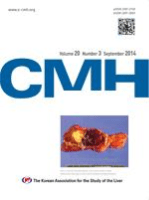
Clinical and Molecular Hepatology
Pioneering insights in hepatology and molecular biology.Clinical and Molecular Hepatology, published by the Korean Association for the Study of Liver, stands at the forefront of hepatology, offering a significant platform for research and innovation in liver diseases. Established in 1995 as an open access journal, it aims to disseminate high-quality research that spans the fields of hepatology, molecular biology, and medicine. With an impressive impact factor ranking it in the Q1 category for 2023 in both Hepatology and Molecular Biology, the journal facilitates a rich exchange of knowledge among professionals, researchers, and students globally. With its dedicated coverage from 2012 to 2024 and exceptional Scopus rankings placing it within the top 10% of journals in its field, Clinical and Molecular Hepatology is an indispensable resource for advancing the understanding and treatment of liver conditions. Located in Seoul, South Korea, the journal emphasizes rigorous peer review and is committed to enhancing clinical practice and molecular research, making it an ideal venue for groundbreaking studies in liver health.